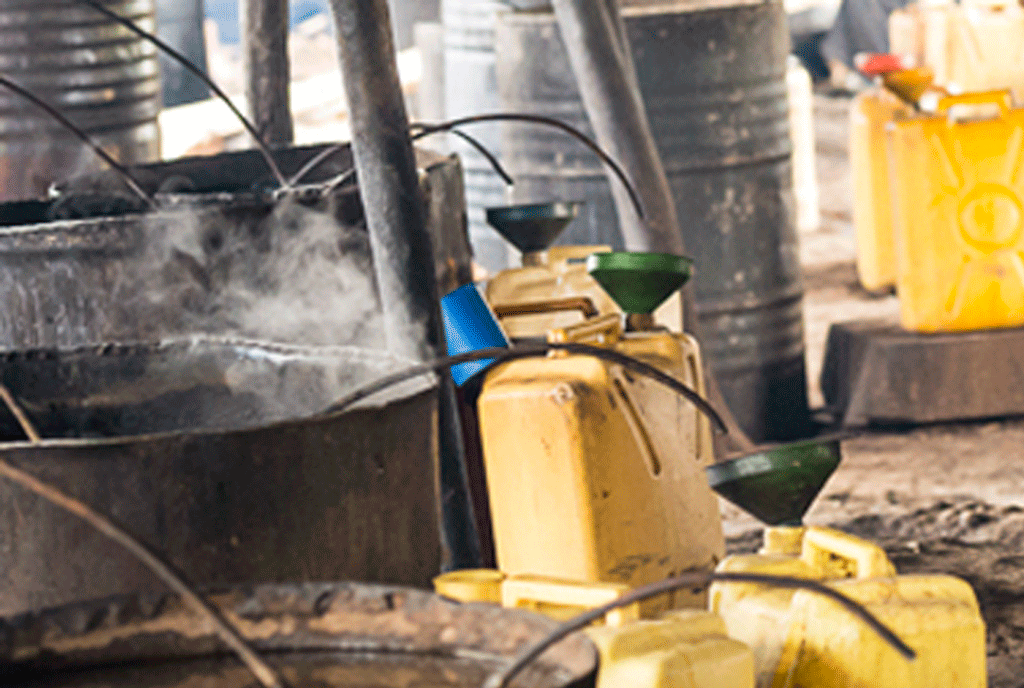6 die after consuming local waragi in Arua

Locally brewed waragi kills several Ugandans annually. PHOTO/COURTESY
What you need to know:
- Local leaders have called on the government to crack down on unregulated distilling companies.
Six people have reportedly died in Arua City after allegedly consuming locally-distilled gin, police have said. The group died in separate intervals.
Among the deceased is Nelson Awuzu, 50, the chairperson of Dadawu Village in Kenya Zone, Mvara Ward, Arua City. His age wasn’t readily available.
The other victims are Isaac Alioni, 47, Dick Edamara, 43, Gordon Tito, 51, Titus Awudele, 51, and Cosmas Karibu, 53.
Speaking to Monitor on Saturday, one of the friends of the late, Mr Laban Ovua, said: “I am from the burial of Awuzu. He died on Thursday morning after consuming the gin the previous night. It is a sad moment, which authorities in the city and police should check.”
He said distilling companies should be regulated. Mr George Odama, a resident of Mvaradri Cell, where one of the locals died, said: “Some people wanted to riot and attack the person who was selling the gin, but we managed to calm the situation. In any case, it is the distilling company that should be punished if found guilty.”
The police spokesperson for West Nile, Ms Josephine Angucia, said: “We have discovered that seven people died separately in various places after consuming the gin. We have taken samples for investigation.”
“We are yet to establish the sellers [of this waragi], but we know they are operating in Kasia Cell, Ayivu West Division. Our police officers have been dispatched to get more information,” she added.
Ms Angucia said they would send the samples to the Central Laboratory to carry out tests. She said they had not yet made any arrests because investigations had just commenced.
Unconfirmed reports also indicate that about five people died in Ayavu Village in Madi Okollo District.
Efforts to verify the information were futile by press time because local leaders declined to comment on the matter.
There have been mushrooming companies that are distilling gin and wines across the sub-region, which are openly sold on the market cheaply. Many of them do not have certification from Uganda National Bureau of Standards.
Ordinance
The 2016 Arua District Alcohol Control Ordinance that, among others, allows for control in production and consumption of alcohol has not yielded much results due to shortfalls of budget to sensitise the communities.
Reproductive Health Uganda has, however, been engaging youths and the elderly on dangers of alcohol consumption.
The Arua District Education Ordinance of 2008, Part 11 (ii), empowers the sub-county local administration to ensure that children do not engage in alcohol drinking. It empowers the leaders to arrest and discipline such children.
Part 18 (2) of the Ordinance states that where a person sells drugs, alcohol or any other prohibited substances to a child commits an offence and is liable on conviction to a fine not exceeding two currency points or imprisonment not exceeding one month or both.
Local leaders have always asked Parliament to hasten the enactment of the Psychoactive Substance Control Act, the repeal of the Liquor and Enguuli Act to regulate alcohol and drug abuse in the country.
But there is neither restriction on advertising alcohol nor sponsorship with exception of ban on sachet waragi where companies have resorted to bottling the gin.
Enforcement of laws on alcohol beverages, according to local leaders, in government premises, health centres and education institutions is inadequate.




